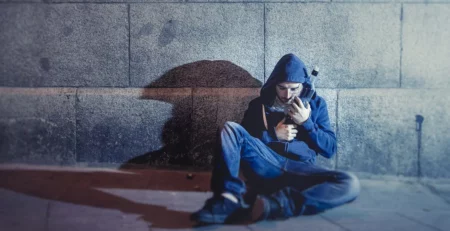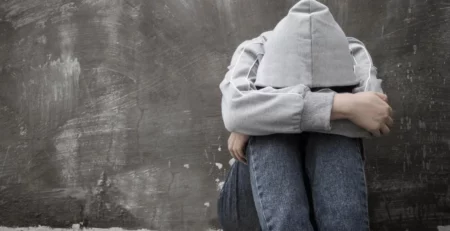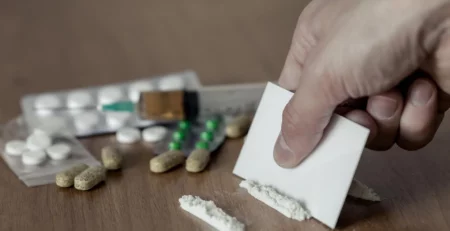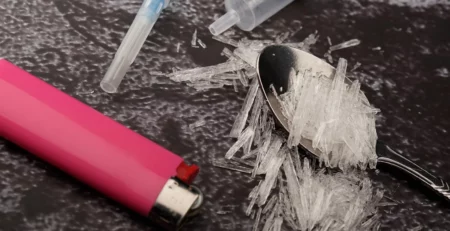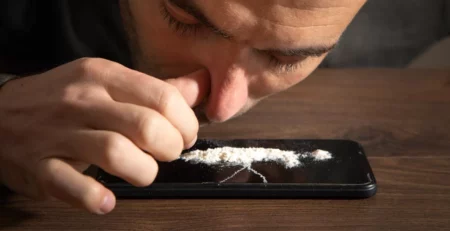My Partner Triggers My Trauma
Coping Mechanisms and Treatment Options for CPTSD and PTSD
When you are dealing with past trauma, it can affect every part of your life. Traumatic memories can creep in at any moment and leave you struggling to control your emotions and the way that you react. I have experienced this firsthand, and it took a lot of soul-searching and therapy to get to a place where I feel at peace.
Trauma triggers can happen at any time and place. If you’ve experienced trauma in your life, then you know that it can control you at times. There is no ‘try not to think about it’. These negative memories and emotions can come swirling back when you least expect it. Even the most loving spouse or significant other can cause you to think (or even say aloud) ‘My partner triggers my trauma.’
For trauma survivors, it’s important to have people in your life who are understanding of this and understand the process of getting help. Along with a support network put in place following treatment, I have Icarus in Nevada to thank for helping me get my life under control.
Keep reading to learn more about my path through a trauma that threatened to overtake my whole life and how the programs at Icarus Nevada offered relief from PTSD and traumatic memories.
How Trauma Responses Can Control Us

Everyone’s past trauma manifests itself in many different ways. Some people turn to drugs and alcohol. Some try to repress their emotions and go on with their lives in almost a zombie-like state. In my case, these are just a few examples of what happened to me. It took me years to learn how to communicate openly about my trauma and feel comfortable enough to wear it on my sleeve.
In recent years, there have been a lot of advances in the treatment of disorders such as post-traumatic stress disorder. Post-traumatic stress disorder, or PTSD as it is commonly referred to, is a disorder in which a person has trouble recovering from past trauma.
Knowing Your Boundaries and Tailoring Treatment
This can be one traumatic event or a series of traumatic events that occur in childhood. PTSD can also be caused by abusive relationships. PTSD symptoms are also quite common in combat veterans, or anybody who experiences the effects of war. This is how I first heard about the term PTSD.
Trauma is complex but treatable. If trauma treatment worked for me, I feel like it can work for anyone. In this piece, I will lay out all the ways that trauma can affect you, and how recovery through treatment programs like Icarus in Nevada is possible. Just know that no matter what, you can find peace and safety.
Get Effective Trauma Treatment Options – Reach Out Now!
Surviving Past Trauma is Possible
I grew up in a family that was full of emotional and physical abuse. My father was rarely in the picture. He was an abusive person, so when he finally left it was a relief for my mother and siblings. I was about six years old the last time I saw him. I learned years later that he died of a drug overdose when I was in high school.
My older siblings suffered most of the abuse, and unfortunately, they continued the pattern. My mother was an alcoholic and was often absent or indifferent towards us. Even though she was very religious (a source of religious trauma for me later in life) she did nothing when my older brothers would bully me. Their bullying was a combination of emotional abuse and physical violence. In later years, I have learned to forgive them. Knowing what I know now, they were victims as much as I was.
How Your Past Can Affect Your Future (and Live On in the Present)
I grew up with very low self-esteem and did not practice self-care in any shape or form. When you live through childhood trauma, you develop coping strategies that are often unsafe. I started drinking and using drugs in middle school. Every area of my life was painful. I never experienced joy other than when I got high with my friends.
When I started dating, my intimate relationships were full of drama and emotional abuse. I chose romantic partners who degraded me and treated me like I was nothing. It was easy to stay in these relationships because my self-worth was in the gutter. I had no self-awareness to be able to see that I was consistently putting myself in bad situations.
Trauma Bonding is a Reality for Some of Us

Nobody enters an abusive relationship because they want to be abused. There is a psychological nature to how those with past trauma view intimate relationships. One relationship after the other was marked by trauma bonding. This is when a person forms a deep emotional connection with an abusive partner. You start to believe that in some twisted way, this is how love works.
I’ve heard the same thing from multiple deadbeat boyfriends. “The reason I react that way is because I care.” It’s easy for an abuser to emotionally manipulate a partner with low self-esteem. They beat you, break you down, and make you believe that no one else will ever love you. They are the ‘only ones who care.’ The reason they lash out at you is your fault. When you are in this cycle of abuse, it is very hard to find your way out.
How Trauma Triggers Work
Whether you experience one traumatic event, or years worth of traumatic events, trauma triggers pop up in your life at unexpected moments. It can be a sound or a smell that instantly causes you to associate with past trauma. One of my abusive boyfriends used to smoke cigarettes. Years later, the smell of cigarette smoke still triggered me. So how do these trauma triggers work exactly?
One of the things I struggled with during my recovery from past trauma was anxiety and depression. Oftentimes, if my anxiety got bad enough, I would get lightheaded and nearly faint. This was one of the many trauma responses that my body exhibited. There’s no way to tell how you will react to a trauma response.
Your forms of trauma triggers are likely to be much different than mine, and determining your triggers and what you associate with the events from the past is an important part of being prepared to cope more effectively. My default response used to be to shut down and hide, either physically or by disassociation.
Confidential Trauma and PTSD Assessment – Call Now!
PTSD and The Nervous System
In simple terms, trauma triggers refer to the emotional and/or physical sensations that result from memories associated with past trauma. Mental health disorders like PTSD cause the nervous system to kick into high gear. A trigger response not only results in emotional/mental discomfort but can also result in an elevated heart rate and blood pressure.
Because I used to have these kinds of episodes, it would make my anxiety worse. I would come to expect that at any point, I could get lightheaded and faint. At a certain point in my early adulthood, the intense emotions and physical sensations associated with my trauma became too much. I essentially shut off my emotions and buried my pain. At first, it seemed like a solution. Until I began to experience relationship trauma triggers.
Neglecting Your Well Being
It’s easy to neglect your well-being and fall into negative patterns when you feel so horribly about yourself. One of the trickiest things for me when it comes to my healing has been developing confidence in myself. I’ve spent just about my entire life trying to be something for somebody else.
Trying to focus on someone else’s happiness, and usually failing at that too. It took a long time for me to realize that someone else’s happiness is not my responsibility.
Because I was raised in a broken home, it became my norm. Looking at it from the outside, it’s easy to wonder why people stay in abusive relationships or don’t try to help themselves. When you’re in it and it’s all you’ve ever known, the idea of changing your situation is non-existent. Anytime those thoughts or ideas crept into my head, they were tempered by the assumption that it wasn’t possible for me to be happy.
How My Partner Triggers My Trauma: A Personal Account

I felt like I had put my past traumas behind me until I began a new relationship. It was the first time I had ever been in a healthy relationship. This was the first person I could be intimate with who didn’t emotionally or physically abuse me. Everything was great at first until my PTSD started to creep back in. Given my past, I did not understand the symptoms of CPTSD also were present, due to my childhood abuse leading the way to adult traumatization.
I didn’t tell my new partner very much about my past. I wanted to pretend that the pain I experienced had never happened. I went out of my way to avoid triggering anything from my past. There started to be disruptions in my emotional regulation. I would be fine one moment, and then have an intense emotional reaction the next.
Certain situations made me feel triggered. My well-being slowly began to crumble, I would isolate myself and feel deeply hopeless. Here was a person who loved me, and yet they were also a powerful trauma trigger without ever meaning to be.
Being Honest About Your Past is Crucial for a Better Future
My relationship began to suffer as a result of my past traumas coming back to haunt me. I could no longer manage triggers or regulate my own emotions. It became debilitating enough that I lost my job and could hardly get out of bed. My partner knew that something serious had to be going on for me to regress this much. I finally began to open up and explain some of the things I had been hiding about my past.
Because of all of the trauma I experienced, I assumed that my partner would leave me and not want to deal with my issues. My self-worth was once again back at zero, and I assumed no one would ever be able to love someone like me. I was such a drag to be around. Who would want to deal with this in a relationship? It shocked me that my partner was willing to work things out and help me.
Get a Confidential Trauma Assessment – Reach Out Now!
Healing Trauma Through Self-Care and Awareness
It’s hard to trust anyone’s good nature when you come from so much darkness in your past. You automatically assume the worst-case scenario in every situation. You assume no one will want to be with you. You don’t believe that you can attain happiness. If you do, you figure that it is not sustainable. If anything good happens, you are expecting something terrible to follow it. This is how we train our brains when all we’ve ever known is trauma.
Living in the present moment is hard when you are conditioned in this way. You are either tortured by past events or worrying that something bad will happen in the future. It took me years to learn how to enjoy the moment and not be constantly pessimistic. Healing trauma is almost impossible without some type of professional help.
When To Seek Professional Help for Trauma and PTSD

If you’ve tried everything you’re way and you’re back to square one, it’s probably time to accept help. Again, this is very hard if all you’ve ever known is trauma. It’s easy to convince yourself it won’t work. In my case, I didn’t think I deserved to be happy. I assumed that my life was destined for pain and sadness. I had come to accept that this was the only way.
My healing journey began at Icarus in Nevada. Moving forward for me meant I had to stop playing and replaying all the negative thoughts in my head. My attitude had to change big time. I had to gain awareness of my trauma and how it was controlling my life. I learned that it wasn’t impossible for me to be happy if I began to face my past.
Having The Right Support System is Vital
The key to leading any kind of fulfilling life is having a strong support system. Many people who experience trauma bonding struggle to break trauma bonds without support. If you have no self-esteem, are surrounded by negative people, and don’t know what it feels like to have a healthy relationship, the chances are high that you won’t be able to escape.
My partner was supportive through my therapy and learned how he was unintentionally triggering my trauma. Just the act of raising his voice a little bit was enough to trigger me. It didn’t have to be in anger or frustration either. If he raised his voice at all, even in excitement or happiness, it triggered me.
A Few of My Favorite Self Care Activities
Through my therapy for PTSD, I have developed many healthy coping strategies and self-care activities that have greatly benefited me. First and foremost, it is important to set healthy boundaries between you and those that might trigger you. For example, I still have a relationship with my mother, albeit a strained one due to her alcoholism. It’s tough, but I try hard to not take on her energy and make her problems my own.
I prioritize self care more than anything. If I’m having a rough day, I won’t stew in my feelings. I will do things that make me feel better. I will take a step back and take care of myself if need be. I also have learned a lot of breathing techniques that help me when I am stressed. If I ever get triggered or fearful, I focus on deep breathing. This almost always helps to calm my nerves.
Hobbies And Creative Outlets
I can’t say enough about how being creative has helped me heal. As a result of my time at Icarus, I started participating in art therapy. I recently began learning how to play guitar. I never realized how beneficial having a creative outlet can be. Not only does it give me a healthy hobby, it makes me feel productive as well. I always feel better if I can learn to play something new. I feel accomplished. It’s helped tremendously with my self-esteem and self-worth.
Having hobbies and teaching myself new things has made me grow so much as a person. I have overcome a lot just by making music and art a part of my life. My partner has been extremely supportive of this as well. He has encouraged me to challenge myself, and I am doing things I never thought I was capable of. Again, having the right people around you goes a long way.
Have The Conversation About Trauma With Your Partner
I’ve learned that talking about my struggles has not only helped me, but it could help others as well. When I got to domestic violence survivors groups, I speak openly and honestly. I am not ashamed anymore to let it all out. There was a time when I was, and I can see that happen with other people.
Over and over again, I have met women who are afraid to speak up. Afraid to be vulnerable and tell their story. But help is out there, and you can recover and find a new way to live, without fear ruling over each day.
It’s understandable why a lot of people lose hope. I felt that way for years. It terrified me to burden somebody else with my issues. Once I started talking about it with others, the more I realized how badly I had been wronged by others. Having the conversation has helped me grow as a person, and given me the ability to let others know they are not alone.
Create Safe Spaces and a Safety Plan

When I go to a group meeting, I know I am in a safe space. No one is going to judge me. I’ve never gone into a support group thinking I would be questioned or accused of anything. All you can expect is that other people will listen. Just the act of listening is comforting, and I try to listen to others as well. Sometimes I might not have an answer for somebody, but just being there to hear them vent is enough.
If I am having a tough day or feel triggered at all, I know that I have a safe space to talk about it. I’ve learned that you aren’t going to go through life without having a challenging experience from time to time. Tough times will come. It’s how you react in those tough times that makes all the difference. I try very hard to be grateful. Gratitude goes a long way in fixing yourself. This can be said for anybody struggling with addiction, past trauma, or other trying situations.
Managing Triggers is Possible and a New Life Can be Found
I manage my triggers much better these days, but I still have moments of weakness. I’ve come to learn that I will probably never completely overcome my trauma, but I know how to contain it and not let it ruin my life.
Life for me is good these days, and I am content with where I am at. I think I am a much stronger person for going through what I’ve gone through. I want to teach others that they can heal.
Up To 100% of Rehab Costs Covered By Insurance – Call Now!
Reaching Out to Icarus Nevada for PTSD and Trauma Support
It’s now a passion of mine to try and help people the way that I was helped. I see myself as an example of somebody who went from a hopeless situation to a thriving one through the right form of CPTSD treatment. I am looking very forward to a future with a great partner, a strong support system, and the opportunity to help other people who have a similar history as me.
Above everything else, I have Icarus in Nevada to thank for this turnaround. If you think you’re ready to seek help, this is the perfect place to start. Give them a confidential call today, and get options for a life without the shadows of past trauma lurking around every corner!




